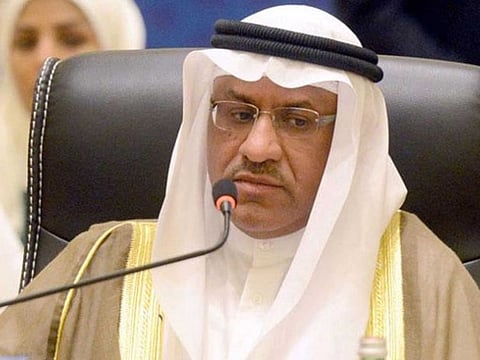Salafis oppose appointment of women as judges in Kuwait
Attorney General Dirar Al Asousi has approved the promotion of eight female prosecutors

Abu Dhabi: Days before the expected approval from the Supreme Judicial Council to appoint a number of women as judges marking a historic first step of its kind in Kuwait, the country’s Salafi hardliners are outraged and are opposing the appointment.
Kuwaiti Attorney General, Dirar Al Asousi, approved the promotion of eight female prosecutors to the rank of judge, among some 54 chiefs prosecutors, who were nominated for judicial positions.
They will become the first eight women judges in the history of Kuwait and the Kuwait’s Supreme Judicial Council is set to be held on Tuesday to approve their appointment and start work from September.
Speaker of the National Assembly, Marzouq Ali Al Ghanem, said, “the rise of Kuwaiti women to the judiciary platform, is a long-awaited entitlement, and a step forward in the march of Kuwaiti women.”
He added on his Twitter account, “A thousand greetings to Kuwaiti women, as they accumulated successes over the years in all fields.” He expressed his confidence in the ability of Kuwaiti women to prove their efficiency, as they have done in many other areas.
Move opposed
But Mohammad Haif, secretary general of the Thawabit Al Umma Salafi bloc, denounced the move and said the judiciary is a general mandate that only men can assume.
He said on the Salafi bloc’s Twitter account that the appointment of women in the judiciary “is not commensurate with the composition or nature of women, nor is it compatible with the true Sharia.”
Haif added that “rushing to issue a decision without a legal opinion supporting it, appointing women as judges, would be against the law and contradicts the nature of women, and would open the door to appeal against the rulings issued by female judges, and litigants may demand they be disqualified, which would disrupt the judicial system and embarrass the Judicial Council”.
He went on, “We draw the attention of the brothers, members of the Judicial Council, before agreeing to the memorandum submitted by the Attorney General to transfer prosecutors to judges, that this issue is not that easy, and it has legal, social and judicial consequences that must be thoroughly studied, and Islamic law history should be consulted before embarking on this step, which carries a lot of questions.”
For his part, MP Khaled Al Otaibi said, “The judiciary is a branch of the Great Islamic Imamate, and it is not permissible for a woman to assume it.” As for MP Majid Al Mutairi, he argued, “How can (a woman) judge rule on the divorce of women while she does not have the right to divorce herself?”
Kuwait is not the first among the GCC countries to appoint women to the judiciary, as the UAE appointed Kholoud Ahmad Jaouan Al Dhaheri, to be the first Emirati and Gulf judge in March 2008.
On March 11, 2010, Qatar appointed Sheikha Maha Mansour Salman Jasim Al Thani, assistant judge in the Qatari courts, the first woman to be appointed to the judiciary in Qatar.
In July 2010, Bahrain appointed three female judges, two of them were appointed to the Lower Civil Court, namely: Mai Matar and Noura Al Midfa, while Adela Hassan was appointed as a judge of the Civil High Court.
On March 20, 2019, the UAE appointed two additional female judges in the federal judiciary, Judge Khadija Al Malas and Judge Salama Al Ketbi. Al Malas was appointed to the position of “Appeals Judge”, and Al Ketbi in the position of “Primary Judge” in the federal courts.
Sign up for the Daily Briefing
Get the latest news and updates straight to your inbox









